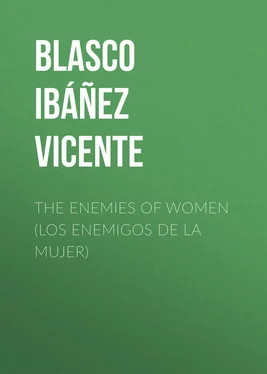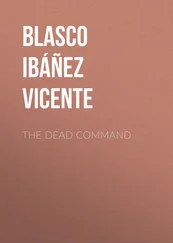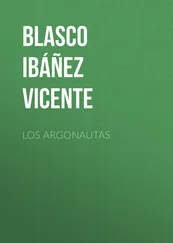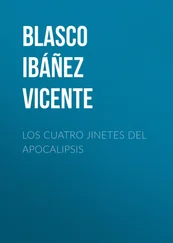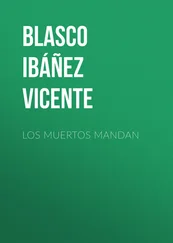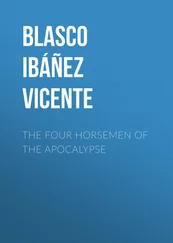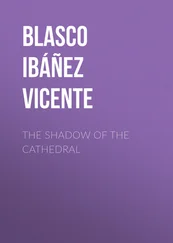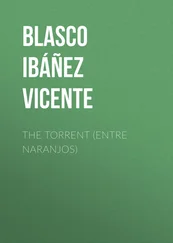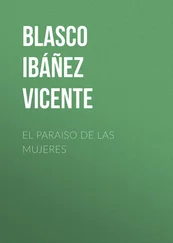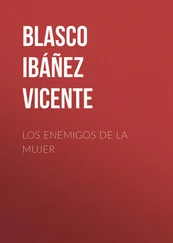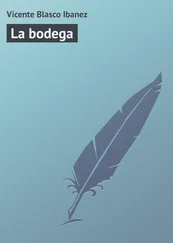Vicente Blasco Ibáñez - The Enemies of Women (Los enemigos de la mujer)
Здесь есть возможность читать онлайн «Vicente Blasco Ibáñez - The Enemies of Women (Los enemigos de la mujer)» — ознакомительный отрывок электронной книги совершенно бесплатно, а после прочтения отрывка купить полную версию. В некоторых случаях можно слушать аудио, скачать через торрент в формате fb2 и присутствует краткое содержание. ISBN: , Жанр: foreign_prose, foreign_antique, foreign_language, на английском языке. Описание произведения, (предисловие) а так же отзывы посетителей доступны на портале библиотеки ЛибКат.
- Название:The Enemies of Women (Los enemigos de la mujer)
- Автор:
- Жанр:
- Год:неизвестен
- ISBN:http://www.gutenberg.org/ebooks/38458
- Рейтинг книги:3 / 5. Голосов: 1
-
Избранное:Добавить в избранное
- Отзывы:
-
Ваша оценка:
- 60
- 1
- 2
- 3
- 4
- 5
The Enemies of Women (Los enemigos de la mujer): краткое содержание, описание и аннотация
Предлагаем к чтению аннотацию, описание, краткое содержание или предисловие (зависит от того, что написал сам автор книги «The Enemies of Women (Los enemigos de la mujer)»). Если вы не нашли необходимую информацию о книге — напишите в комментариях, мы постараемся отыскать её.
The Enemies of Women (Los enemigos de la mujer) — читать онлайн ознакомительный отрывок
Ниже представлен текст книги, разбитый по страницам. Система сохранения места последней прочитанной страницы, позволяет с удобством читать онлайн бесплатно книгу «The Enemies of Women (Los enemigos de la mujer)», без необходимости каждый раз заново искать на чём Вы остановились. Поставьте закладку, и сможете в любой момент перейти на страницу, на которой закончили чтение.
Интервал:
Закладка:
The Colonel endeavored to keep up with her. He never said anything, but his heart was heavy. The Prince protested against her racing in this fashion, which might have been all very well on her native plains. The girl's retorts widened the breach between them, with feelings of hostility. "No one is going to talk to me like that, not even my mother," she said. "I'm old enough to know what I ought to do." She was fifteen.
One morning in the Bois, coming to a cross road that happened to catch her fancy, Alicia started her horse for the Avenue without consulting her companion.
"No, this way," Michael called in a commanding voice.
"I don't like that; this is the way!" she answered aggressively.
The Prince made an effort to cut her off by crossing ahead of her, and she spurred her horse against Michael's with a shock that brought the two animals to their knees. The Colonel, who was behind them, caught an exchange of angry glances, and harsh words. Alicia raised her whip, and struck the Prince across the shoulders.
"You do that to me !" shouted Michael furiously.
The face of this scion of the old Cossack Lubimoff underwent a rapid series of expressions, finally taking an aspect of extreme ugliness and savagery. His nostrils seemed to dilate even more than usual. He raised his whip and struck, but Toledo had put his horse between the two, receiving the tip of the lash on his cheek, which began to bleed. The sight of blood and the thought that the blow was intended for her, drove the young woman mad with rage.
"Brute! Savage!.. Russian!"
This seemed too mild, and she stopped for a moment, to think up a greater insult. Her childhood memories helped her; the legend she had heard from the half-breeds back in her own land inspired her with a new affront, as if Michael Fedor were Fernan Cortes.
"Spaniard!.. Murderer of Indians!"
And fearing a new lashing after that supreme insult, she fled at a mad pace without stopping until she reached the Arch of Triumph.
After this incident Doña Mercedes lost all hope of her daughter's becoming a Lubimoff.
"A Russian Princess!" she said scornfully. "Why, everyone is a Prince in Russia!.. A mere English baron is better, or a French or Spanish count."
Michael was in a mood no more conciliatory when the Colonel lectured him.
"I don't want to hear anything more about that wench!" said he.
And the Princess, in one of her petulant moments averred that she considered this word the proper one. These relatives of Sir Edwin had always seemed to her very ordinary people. Likewise it seemed to her very natural that her son should think of going back to Russia to fill his station as a Prince. The life of caste and privilege there was more suitable to his rank than the democratic ways of Paris, where certain American Indians, because they had millions, could imagine they were the equals of the Lubimoffs.
Prince Michael remained in Russia until he was twenty-three. His military studies were passed brilliantly, according to Toledo, and the boy succeeded in distinguishing himself among the most famous cavalry officers of the Guard. He took prizes in exhibitions of horsemanship. With his revolver he could pot coins held up at fifty paces by his comrades. He wielded the sabre with a skill that his Cossack ancestor and General Saldaña would have admired. Every morning in the courtyard of his Petersburg palace he found awaiting him a life-sized dummy made of the firm sticky clay used by sculptors. He would stay for half an hour in front of it, going through his exercises. It was not enough to be able to strike one's enemy. The important thing was to strike well, with the greatest possible depth and force. And the head and limbs of the dummy went flying, severed by the steel blade. The study of military science was all well enough for those in the infantry or the artillery – sons of clerks and merchants!
At first the Colonel was astonished at the magnificence and extravagance of Russian life. Finally he came to take it all quite naturally, as though he had been accustomed to something similar from his earliest boyhood. "My son, remember the name you bear," the Princess used to write to the Prince. "Do not disgrace it. Spend according to what you are." And the son, without asking her for anything, followed her advice faithfully by coming to a direct understanding with the Russian administrators. Don Marcos figured that the Lieutenant in the Guard was spending something over three millions a year. His racing stables were the most celebrated in the capital. Many famous beauties of the court and the theaters were on good terms with Prince Michael Fedor. His supper parties in the Lubimoff palace or in the fashionable restaurants were sought after by all the young men of the aristocracy. To be invited to one of them was an extraordinary honor, something like being a member of an academy of supermen. It often happened that toward morning on nights of such parties celebrated women finished by dancing naked on the tables, so that the host "might not be displeased."
Sometimes these celebrations ended in drunken brawls, where wine mingled with blood. The Colonel had seen one of these suppers result in a duel between two of the guests. It took place in the palace garden, just before dawn. One of the men was killed. His best friends carried the corpse to the quay of the Neva, and placed a revolver in his hand to make it look like a case of suicide.
No: Don Marcos did not care much for those nocturnal feasts. He considered them dangerous. On one occasion, a youthful Grand Duke, absolutely drunk, amused himself by daubing the Colonel's whiskers with caviar, until, tired of such brazen familiarity, the Spaniard in turn put his hand in the dish and smeared the other man's august face with green. The duke hesitated for a moment whether or not to kill him, but finally embraced him, covering him with kisses and shouting aloud, "This is my father."
Toledo preferred his own honorable and quiet friendships with General Saldaña's former companions in arms; solemn personages who talked to him about world politics and future wars. Besides, the Prince's generosity permitted the Colonel secret pleasures, less noisy, and agreeably unostentatious.
One night, returning to the Lubimoff palace after two o'clock, he saw there was a supper party in the great dining hall used on gala occasions. Some fifty guests had assembled, and in the course of the night many more had arrived. It seemed that the news had spread throughout all the pleasure resorts of the capital, attracting all the youthful libertines.
Opposite the Prince was seated a Cossack officer, short, lithe as a panther, dark skinned, with Asiatic eyes. His wrinkled uniform showed signs of recent traveling. Michael Fedor showed him the greatest attention, as though he were the only guest. Toledo, being acquainted with all the friends of the house, was unable to place this uncouth Cossack, who looked as though he had come from some remote garrison in Siberia. Some one offered to relieve his uncertainty. He was startled on learning that it was the brother of a court lady who just at that moment was being much talked about on account of her extreme familiarity with Michael Fedor. The two men looked at each other with keen interest, exchanging silent toasts in huge glasses of champagne. At the other end of the hall arose the ceaseless wail of gypsy violins. Several dark skinned girls with striped aprons of many colors were dancing about the tables. But in spite of that, Don Marcos, glancing about, felt instinctively a note of gloom.
"Leon, the sabres!"
The Prince, after looking at his watch, had arisen and given this order to his body servant, who was standing behind him. All the guests rushed for the doors forming a jam, like a crowd, pushing and shoving, at the entrance to a theater. There was no reason now to conceal their real feelings. They were eager for the promised spectacle. The Colonel finally found some one who could talk intelligibly.
Читать дальшеИнтервал:
Закладка:
Похожие книги на «The Enemies of Women (Los enemigos de la mujer)»
Представляем Вашему вниманию похожие книги на «The Enemies of Women (Los enemigos de la mujer)» списком для выбора. Мы отобрали схожую по названию и смыслу литературу в надежде предоставить читателям больше вариантов отыскать новые, интересные, ещё непрочитанные произведения.
Обсуждение, отзывы о книге «The Enemies of Women (Los enemigos de la mujer)» и просто собственные мнения читателей. Оставьте ваши комментарии, напишите, что Вы думаете о произведении, его смысле или главных героях. Укажите что конкретно понравилось, а что нет, и почему Вы так считаете.
